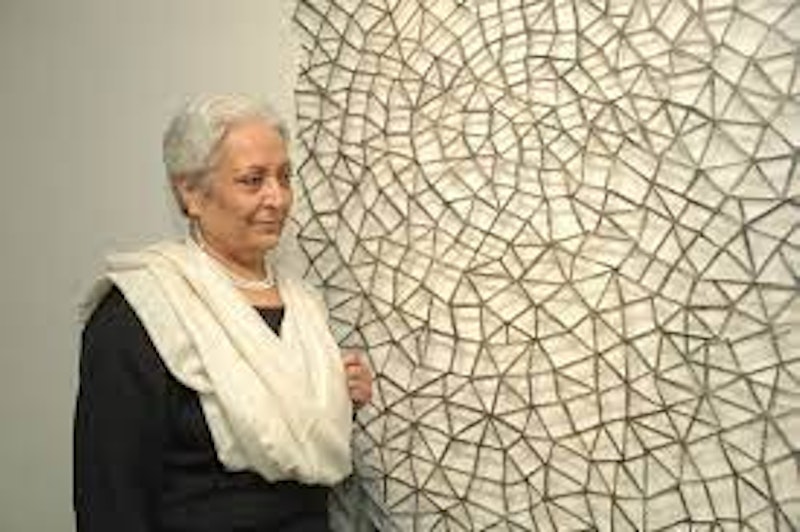Zarina Hashmi: For days I wouldn’t hear my own voice because I had nobody to talk to.
Laraaji: That is one mystical experience. It is invigorating. It does stun some people.
Hashmi: Not anymore, because I’m not in my twenties anymore. It’s just anything.
Laraaji: I’m observing it, but it’s not my overwhelming narrative.
Hashmi: Yes. Yes, architecture. Teaching. Scripture has always intimidated me.
•••
Laraaji: That taught me the power of immersion; this cat was immersed in a black container, so its sense of boundaries were probably annihilated temporarily.
Hashmi: And also, when the pulp dries, it cracks and there are water pits, air bubbles, and it gives a sort of rough surface, and that made me move away from a very pristine, white surface, and in a way, it freed me.
Laraaji: And this gospel singer, halfway through the song, they stopped on one note and held it in this high voice.
Hashmi: Yes, my mother got worried, but my father just laughed. That was 1977.
Laraaji: [Humming a rhythmic hook] Mmhmm.
•••
Hashmi: On Indian long summer afternoons, the rooms are cool; you can’t go out, so we just read heaps of books.
Laraaji: And sometimes other artists would come into the room.
Hashmi: Oh, sure! Sure. We knew each other. But it was wonderful to get out.
Laraaji: Yeah—to achieve an immersionary trance state. I couldn’t write the music down or record it because it wasn’t happening in the physical dimension.
Hashmi: Now I am inside the house and it just happened on its own.

